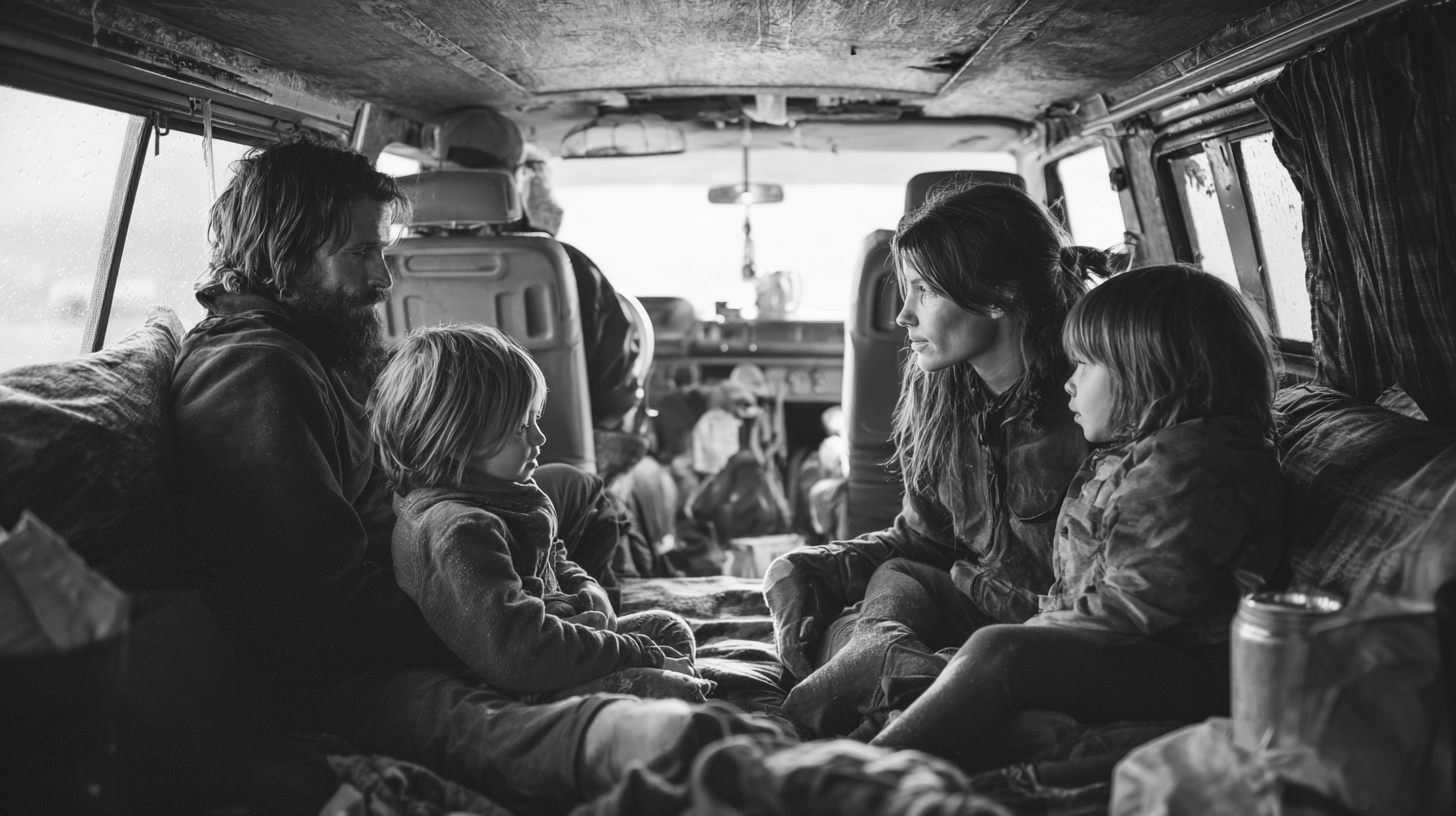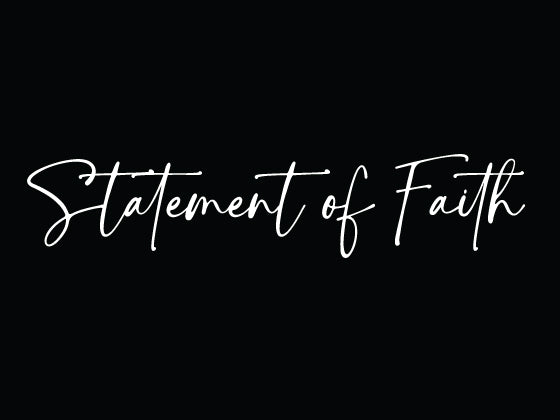Today's Scriptures | Joshua 11-13; Luke 4:1-32
Joshua 11-13
Northern Kings Defeated
11 When Jabin king of Hazor heard of this, he sent word to Jobab king of Madon, to the kings of Shimron and Akshaph, 2 and to the northern kings who were in the mountains, in the Arabah south of Kinnereth, in the western foothills and in Naphoth Dor on the west; 3 to the Canaanites in the east and west; to the Amorites, Hittites, Perizzites and Jebusites in the hill country; and to the Hivites below Hermon in the region of Mizpah. 4 They came out with all their troops and a large number of horses and chariots—a huge army, as numerous as the sand on the seashore. 5 All these kings joined forces and made camp together at the Waters of Merom to fight against Israel.
6 The Lord said to Joshua, “Do not be afraid of them, because by this time tomorrow I will hand all of them, slain, over to Israel. You are to hamstring their horses and burn their chariots.”
7 So Joshua and his whole army came against them suddenly at the Waters of Merom and attacked them, 8 and the Lord gave them into the hand of Israel. They defeated them and pursued them all the way to Greater Sidon, to Misrephoth Maim, and to the Valley of Mizpah on the east, until no survivors were left. 9 Joshua did to them as the Lord had directed: He hamstrung their horses and burned their chariots.
10 At that time Joshua turned back and captured Hazor and put its king to the sword. (Hazor had been the head of all these kingdoms.) 11 Everyone in it they put to the sword. They totally destroyed[a] them, not sparing anyone that breathed, and he burned Hazor itself.
12 Joshua took all these royal cities and their kings and put them to the sword. He totally destroyed them, as Moses the servant of the Lord had commanded. 13 Yet Israel did not burn any of the cities built on their mounds—except Hazor, which Joshua burned. 14 The Israelites carried off for themselves all the plunder and livestock of these cities, but all the people they put to the sword until they completely destroyed them, not sparing anyone that breathed. 15 As the Lord commanded his servant Moses, so Moses commanded Joshua, and Joshua did it; he left nothing undone of all that the Lord commanded Moses.
16 So Joshua took this entire land: the hill country, all the Negev, the whole region of Goshen, the western foothills, the Arabah and the mountains of Israel with their foothills, 17 from Mount Halak, which rises toward Seir, to Baal Gad in the Valley of Lebanon below Mount Hermon. He captured all their kings and put them to death. 18 Joshua waged war against all these kings for a long time. 19 Except for the Hivites living in Gibeon, not one city made a treaty of peace with the Israelites, who took them all in battle. 20 For it was the Lord himself who hardened their hearts to wage war against Israel, so that he might destroy them totally, exterminating them without mercy, as the Lord had commanded Moses.
21 At that time Joshua went and destroyed the Anakites from the hill country: from Hebron, Debir and Anab, from all the hill country of Judah, and from all the hill country of Israel. Joshua totally destroyed them and their towns. 22 No Anakites were left in Israelite territory; only in Gaza, Gath and Ashdod did any survive.
23 So Joshua took the entire land, just as the Lord had directed Moses, and he gave it as an inheritance to Israel according to their tribal divisions. Then the land had rest from war.
List of Defeated Kings
12 These are the kings of the land whom the Israelites had defeated and whose territory they took over east of the Jordan, from the Arnon Gorge to Mount Hermon, including all the eastern side of the Arabah:
2 Sihon king of the Amorites, who reigned in Heshbon.
He ruled from Aroer on the rim of the Arnon Gorge—from the middle of the gorge—to the Jabbok River, which is the border of the Ammonites. This included half of Gilead. 3 He also ruled over the eastern Arabah from the Sea of Galilee[b] to the Sea of the Arabah (that is, the Dead Sea), to Beth Jeshimoth, and then southward below the slopes of Pisgah.
4 And the territory of Og king of Bashan, one of the last of the Rephaites, who reigned in Ashtaroth and Edrei.
5 He ruled over Mount Hermon, Salekah, all of Bashan to the border of the people of Geshur and Maakah, and half of Gilead to the border of Sihon king of Heshbon.
6 Moses, the servant of the Lord, and the Israelites conquered them. And Moses the servant of the Lord gave their land to the Reubenites, the Gadites and the half-tribe of Manasseh to be their possession.
7 Here is a list of the kings of the land that Joshua and the Israelites conquered on the west side of the Jordan, from Baal Gad in the Valley of Lebanon to Mount Halak, which rises toward Seir. Joshua gave their lands as an inheritance to the tribes of Israel according to their tribal divisions. 8 The lands included the hill country, the western foothills, the Arabah, the mountain slopes, the wilderness and the Negev. These were the lands of the Hittites, Amorites, Canaanites, Perizzites, Hivites and Jebusites. These were the kings:
9 the king of Jericho
the king of Ai (near Bethel)
10 the king of Jerusalem
the king of Hebron
11 the king of Jarmuth
the king of Lachish
12 the king of Eglon
the king of Gezer
13 the king of Debir
the king of Geder
14 the king of Hormah
the king of Arad
15 the king of Libnah
the king of Adullam
16 the king of Makkedah
the king of Bethel
17 the king of Tappuah
the king of Hepher
18 the king of Aphek
the king of Lasharon
19 the king of Madon
the king of Hazor
20 the king of Shimron Meron
the king of Akshaph
21 the king of Taanach
the king of Megiddo
22 the king of Kedesh
the king of Jokneam in Carmel
23 the king of Dor (in Naphoth Dor)
the king of Goyim in Gilgal
24 the king of Tirzah
thirty-one kings in all.
Land Still to Be Taken
13 When Joshua had grown old, the Lord said to him, “You are now very old, and there are still very large areas of land to be taken over.
2 “This is the land that remains: all the regions of the Philistines and Geshurites, 3 from the Shihor River on the east of Egypt to the territory of Ekron on the north, all of it counted as Canaanite though held by the five Philistine rulers in Gaza, Ashdod, Ashkelon, Gath and Ekron; the territory of the Avvites 4 on the south; all the land of the Canaanites, from Arah of the Sidonians as far as Aphek and the border of the Amorites; 5 the area of Byblos; and all Lebanon to the east, from Baal Gad below Mount Hermon to Lebo Hamath.
6 “As for all the inhabitants of the mountain regions from Lebanon to Misrephoth Maim, that is, all the Sidonians, I myself will drive them out before the Israelites. Be sure to allocate this land to Israel for an inheritance, as I have instructed you, 7 and divide it as an inheritance among the nine tribes and half of the tribe of Manasseh.”
Division of the Land East of the Jordan
8 The other half of Manasseh,[c] the Reubenites and the Gadites had received the inheritance that Moses had given them east of the Jordan, as he, the servant of the Lord, had assigned it to them.
9 It extended from Aroer on the rim of the Arnon Gorge, and from the town in the middle of the gorge, and included the whole plateau of Medeba as far as Dibon, 10 and all the towns of Sihon king of the Amorites, who ruled in Heshbon, out to the border of the Ammonites. 11 It also included Gilead, the territory of the people of Geshur and Maakah, all of Mount Hermon and all Bashan as far as Salekah— 12 that is, the whole kingdom of Og in Bashan, who had reigned in Ashtaroth and Edrei. (He was the last of the Rephaites.) Moses had defeated them and taken over their land. 13 But the Israelites did not drive out the people of Geshur and Maakah, so they continue to live among the Israelites to this day.
14 But to the tribe of Levi he gave no inheritance, since the food offerings presented to the Lord, the God of Israel, are their inheritance, as he promised them.
15 This is what Moses had given to the tribe of Reuben, according to its clans:
16 The territory from Aroer on the rim of the Arnon Gorge, and from the town in the middle of the gorge, and the whole plateau past Medeba 17 to Heshbon and all its towns on the plateau, including Dibon, Bamoth Baal, Beth Baal Meon, 18 Jahaz, Kedemoth, Mephaath, 19 Kiriathaim, Sibmah, Zereth Shahar on the hill in the valley, 20 Beth Peor, the slopes of Pisgah, and Beth Jeshimoth— 21 all the towns on the plateau and the entire realm of Sihon king of the Amorites, who ruled at Heshbon. Moses had defeated him and the Midianite chiefs, Evi, Rekem, Zur, Hur and Reba—princes allied with Sihon—who lived in that country. 22 In addition to those slain in battle, the Israelites had put to the sword Balaam son of Beor, who practiced divination. 23 The boundary of the Reubenites was the bank of the Jordan. These towns and their villages were the inheritance of the Reubenites, according to their clans.
24 This is what Moses had given to the tribe of Gad, according to its clans:
25 The territory of Jazer, all the towns of Gilead and half the Ammonite country as far as Aroer, near Rabbah; 26 and from Heshbon to Ramath Mizpah and Betonim, and from Mahanaim to the territory of Debir; 27 and in the valley, Beth Haram, Beth Nimrah, Sukkoth and Zaphon with the rest of the realm of Sihon king of Heshbon (the east side of the Jordan, the territory up to the end of the Sea of Galilee[d]). 28 These towns and their villages were the inheritance of the Gadites, according to their clans.
29 This is what Moses had given to the half-tribe of Manasseh, that is, to half the family of the descendants of Manasseh, according to its clans:
30 The territory extending from Mahanaim and including all of Bashan, the entire realm of Og king of Bashan—all the settlements of Jair in Bashan, sixty towns, 31 half of Gilead, and Ashtaroth and Edrei (the royal cities of Og in Bashan). This was for the descendants of Makir son of Manasseh—for half of the sons of Makir, according to their clans.
32 This is the inheritance Moses had given when he was in the plains of Moab across the Jordan east of Jericho. 33 But to the tribe of Levi, Moses had given no inheritance; the Lord, the God of Israel, is their inheritance, as he promised them.
Luke 4:1-32
Jesus Is Tested in the Wilderness
4 Jesus, full of the Holy Spirit, left the Jordan and was led by the Spirit into the wilderness, 2 where for forty days he was tempted[a] by the devil. He ate nothing during those days, and at the end of them he was hungry.
3 The devil said to him, “If you are the Son of God, tell this stone to become bread.”
4 Jesus answered, “It is written: ‘Man shall not live on bread alone.’[b]”
5 The devil led him up to a high place and showed him in an instant all the kingdoms of the world. 6 And he said to him, “I will give you all their authority and splendor; it has been given to me, and I can give it to anyone I want to. 7 If you worship me, it will all be yours.”
8 Jesus answered, “It is written: ‘Worship the Lord your God and serve him only.’[c]”
9 The devil led him to Jerusalem and had him stand on the highest point of the temple. “If you are the Son of God,” he said, “throw yourself down from here. 10 For it is written:
“‘He will command his angels concerning you
to guard you carefully;
11 they will lift you up in their hands,
so that you will not strike your foot against a stone.’[d]”
12 Jesus answered, “It is said: ‘Do not put the Lord your God to the test.’[e]”
13 When the devil had finished all this tempting, he left him until an opportune time.
Jesus Rejected at Nazareth
14 Jesus returned to Galilee in the power of the Spirit, and news about him spread through the whole countryside. 15 He was teaching in their synagogues, and everyone praised him.
16 He went to Nazareth, where he had been brought up, and on the Sabbath day he went into the synagogue, as was his custom. He stood up to read, 17 and the scroll of the prophet Isaiah was handed to him. Unrolling it, he found the place where it is written:
18 “The Spirit of the Lord is on me,
because he has anointed me
to proclaim good news to the poor.
He has sent me to proclaim freedom for the prisoners
and recovery of sight for the blind,
to set the oppressed free,
19 to proclaim the year of the Lord’s favor.”[f]
20 Then he rolled up the scroll, gave it back to the attendant and sat down. The eyes of everyone in the synagogue were fastened on him. 21 He began by saying to them, “Today this scripture is fulfilled in your hearing.”
22 All spoke well of him and were amazed at the gracious words that came from his lips. “Isn’t this Joseph’s son?” they asked.
23 Jesus said to them, “Surely you will quote this proverb to me: ‘Physician, heal yourself!’ And you will tell me, ‘Do here in your hometown what we have heard that you did in Capernaum.’”
24 “Truly I tell you,” he continued, “no prophet is accepted in his hometown. 25 I assure you that there were many widows in Israel in Elijah’s time, when the sky was shut for three and a half years and there was a severe famine throughout the land. 26 Yet Elijah was not sent to any of them, but to a widow in Zarephath in the region of Sidon. 27 And there were many in Israel with leprosy[g] in the time of Elisha the prophet, yet not one of them was cleansed—only Naaman the Syrian.”
28 All the people in the synagogue were furious when they heard this. 29 They got up, drove him out of the town, and took him to the brow of the hill on which the town was built, in order to throw him off the cliff. 30 But he walked right through the crowd and went on his way.
Jesus Drives Out an Impure Spirit
31 Then he went down to Capernaum, a town in Galilee, and on the Sabbath he taught the people. 32 They were amazed at his teaching, because his words had authority.










